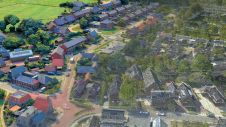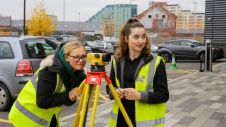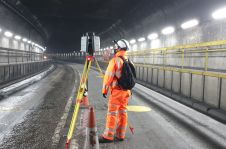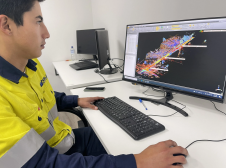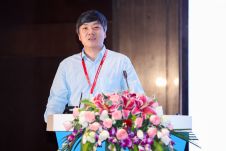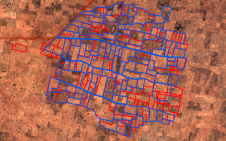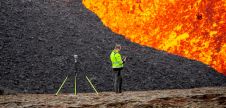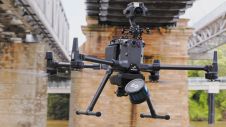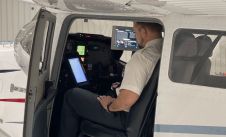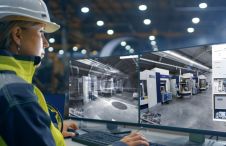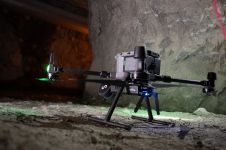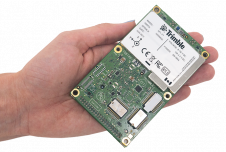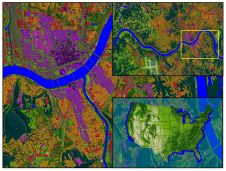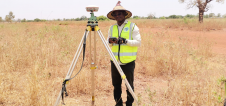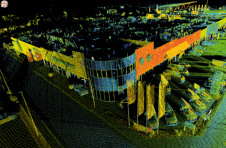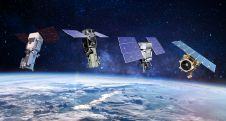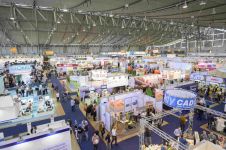"Artificial Intelligence Is Definitely Not Just a Hype"
5 Questions to… Jolle Jelle de Vries, Geomaat
In this interview, Jolle Jelle de Vries from Geomaat shares his views on the key market trends, technology drivers and challenges, and the impacts of COVID-19 and climate change on his organization and the sector in general. Geomaat is a land surveying company specialized in the measurement, acquisition, analysis and processing of geospatial data.
What has been the impact of COVID-19 on your business?
“Well, in the beginning things were a little tense since we were not sure what the future would bring. Fortunately, however, most projects continued running well and our clients also helped by bringing certain activities forward. As a result, COVID-19 has had little impact on our business, apart from in terms of sick leave which increased sharply. Luckily none of our colleagues were seriously ill, but the high level of absenteeism due to illness did put enormous pressure on our planning.”
What do you regard as the key market trend in the years ahead?
“One strong ‘trend’, if we can call it that, in the years ahead will be automatic object recognition in 3D point clouds. Artificial intelligence (AI) is definitely not just a hype. At Geomaat, we are using it more and more in conjunction with automatic object recognition in point clouds. The challenge is to deploy this valuable technique effectively. The use of AI is in itself a learning process; it can’t be implemented overnight. This holds true for us too, so we’re applying AI to big data step by step. So far, we’ve succeeded in using automatic mutation detection to automatically search for differences between the real-life situation (outside) and the digital map data. Another trend that will play a major role in the years ahead is the creation of digital twins (3D city models), and we already have experience in that. A 3D model of a city, town or village can be very useful for local or regional governments. Digital twins can be used to improve citizen participation, environmental legislation, communication, planning and policymaking – they are a very smart way for government authorities to visualize and analyse the areas they are responsible for.”
Which technological driver do you expect to be most important in the coming years?
“I think I will have to say artificial intelligence. By using algorithms to process huge amounts of data (3D point clouds and photos), we’re able to extract the right information more quickly. Our Process & Innovation department is working to further improve this every day.”
你认为在附近的主要挑战future?
“Our profession will need a lot of additional people in order to continue to handle the innovations and challenges that lie ahead. The demand for industry professionals already outstrips the supply. It will be important to stimulate youngsters to study relevant subjects, to train people ourselves and to help people re-train for new roles.”
Due to the climate crisis, companies and organizations urgently need to contribute to a safer and more sustainable world. What is your vision on this?
“Sustainability is important to us at Geomaat and we have been focused on it for the past 15 years. Our offices in Groningen are completely disconnected from the gas supply, and 20% of our vehicle fleet is already electric. In fact, we’re also replacing some of our company vans with electrically powered vehicles this year.”
About Jolle Jelle de Vries
Jolle Jelle de Vries is owner and director ofGeomaat, a Dutch land surveying company specialized in the measurement, acquisition, analysis and processing of geospatial data. The company is committed to quality improvement, innovation and partnership. Together with a team of specialists, De Vries is constantly focused on innovating, developing and further improving the use of technology to shorten project turnaround times and deliver even better results.

Make your inbox more interesting.Add some geo.
Keep abreast of news, developments and technological advancement in the geomatics industry.
Sign up for free

